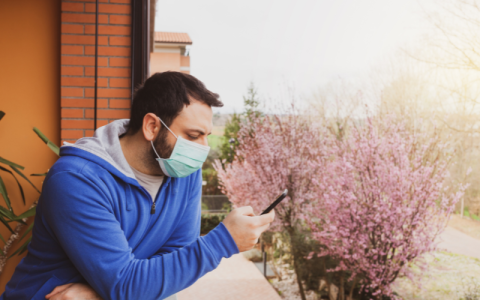New research finds link between social media usage and high levels of loneliness during pandemic

People who used social media messaging apps and platforms during the pandemic reported feeling lonelier than those who did not, according to new research led by academics Dr Hannah Marston and Professor Sarah Earle (both from the OU’s School of Health, Wellbeing and Social Care) in collaboration with international colleagues.
The online survey, the largest of its kind, surveyed more than 3,200 adults aged 18 and over in 13 countries across Europe, Asia and North and South America from April 2020 to September 2021. Participants were asked to respond to 20 statements from the UCLA Loneliness Scale, on a scale of one to four, to indicate how technology impacts social connections and loneliness.
The survey revealed that 49% of users of messaging apps such as Facebook Messenger, Snapchat, and WhatsApp or platforms like Facebook reported feelings of loneliness. In contrast, the figure for those who did not use social media was 47%. The type of online interactions also mattered with research finding that just 46% of people accessing online community support groups said they felt lonely, compared to 47% who weren’t involved in an online group.
Interestingly, the survey also found that young people were more vulnerable to loneliness than their older counterparts.
Dr Hannah Marston said: “We are already acutely aware of loneliness’ impact on older people, but we often overlook its prevalence in people earlier in life and those who live in more isolated areas. Scholars, the third sector and governments must focus more research on these communities and how technology and other demographic factors influence social isolation.”
Almost a third (31%) of participants aged 18 to 29 reported feeling lonely during the pandemic lockdowns, compared to 25% of those between 40 and 49. Only 10% of people in their fifties reported feeling lonely, which was marginally lower than the nearly 11% of those over 60 who reported similar feelings.
They also found that people living in rural areas reported lower levels of well-being than those living in suburban and small-town areas. Participants in rural areas scored an average well-being score of 54% on the scale, compared to 60% and 61% for suburban and small town residents, respectively.
OU academics are working with researchers across the world to provide insights into social media and mental health. Remarking on the motivations behind the research and where it can go next Dr Hannah Marston said: “During the coronavirus pandemic, technology became the only mechanism to connect with others for many of us as restrictions and safety concerns left us unable to leave the house or engage in social activities. Still, people are social creatures, and our research demonstrates that online connection is not always a substitute for the real thing.
“These findings contribute to several disciplines, including social gerontology, gerontechnology, and public health. In addition, they can assist with the current discourse and route mapping of action plans in the Regional digital health action plan for the World Health Organisation’s European Region 2023-2030.”
Are you already an OU student?
Request your prospectus
Explore our qualifications and courses by requesting one of our prospectuses today.
Request prospectus